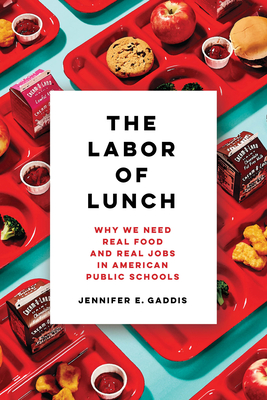Expedite your nonfiction book discovery process with Readara interviews, summaries and recommendations, Broaden your knowledge and gain insights from leading experts and scholars
In-depth, hour-long interviews with notable nonfiction authors, Gain new perspectives and ideas from the writer’s expertise and research, Valuable resource for readers and researchers
Optimize your book discovery process, Four-to eight-page summaries prepared by subject matter experts, Quickly review the book’s central messages and range of content
Books are handpicked covering a wide range of important categories and topics, Selected authors are subject experts, field professionals, or distinguished academics
Our editorial team includes books offering insights, unique views and researched-narratives in categories, Trade shows and book fairs, Book signings and in person author talks,Webinars and online events
Connect with editors and designers,Discover PR & marketing services providers, Source printers and related service providers

The Labor of Lunch: Why We Need Real Food and Real Jobs in American Public Schools Volume 70
Social Science > Agriculture & Food (see also Political Science - Public Policy - Agricultur
- University of California Press
- Hardcover
- 9780520300026
- 9.1 X 6 X 1 inches
- 1.2 pounds
- Social Science > Agriculture & Food (see also Political Science - Public Policy - Agricultur
- (Single Author) Asian American
- English
Readara.com
Book Description
There's a problem with school lunch in America. Big Food companies have largely replaced the nation's school cooks by supplying cafeterias with cheap, precooked hamburger patties and chicken nuggets chock-full of industrial fillers. Yet it's no secret that meals cooked from scratch with nutritious, locally sourced ingredients are better for children, workers, and the environment. So why not empower lunch ladies to do more than just unbox and reheat factory-made food? And why not organize together to make healthy, ethically sourced, free school lunches a reality for all children?
The Labor of Lunch aims to spark a progressive movement that will transform food in American schools, and with it the lives of thousands of low-paid cafeteria workers and the millions of children they feed. By providing a feminist history of the US National School Lunch Program, Jennifer E. Gaddis recasts the humble school lunch as an important and often overlooked form of public care. Through vivid narration and moral heft, The Labor of Lunch offers a stirring call to action and a blueprint for school lunch reforms capable of delivering a healthier, more equitable, caring, and sustainable future.
Author Bio
I joined the Department of Civil Society and Community Studies in 2014 after earning a Ph.D. from the Yale School of Forestry & Environmental Studies. I am also a faculty affiliate of the Center for Community and Nonprofit Studies, the Center for Child and Family Well-being, and the Center for Integrated Agricultural Systems. I serve as an advisory board member to the Haven’s Center for Social Justice and faculty advisor for Slow Food UW.
My research uses critical feminist and ecological lenses to examine the social, political, and economic organization of everyday life. As a transdisciplinary and action-oriented scholar, I often find myself working at the intersection of critical food studies, environmental sociology, and feminist political economy. My research has been appeared in edited volumes on action research and learner-centered pedagogy, as well as the peer-reviewed journals Feminist Economics, Radical Teacher, and Journal of Agriculture, Food, Sustainability, and Community Development.
My forthcoming book on the US National School Lunch Program (NSLP), tentatively entitled “The Labor of Lunch: Why We Need Real Food and Real Jobs in American Public Schools,” will be published by the University of California Press in November 2019. In the book, I use ethnographic, archival, and participatory research methods, to move beyond critique to envision and advocate for a politics of the possible.
For this work I received a First Book Award from the UW-Madison Center for the Humanities. The research for the book was generously supported by the National Science Foundation, the Robert and Patricia Switzer Foundation, the Baldwin Wisconsin Idea Endowment, the Meta Schroeder Beckner Endowment Grant, and the UW-Madison Institute for Research in the Humanities.
My next book-length project is a cross-country comparison of the social organization of school lunch programs in China, Brazil, Japan, South Korea, and Finland. I am interested in how civil society activism, corporate interests, and national policy priorities shape the social justice and ecological goals of government-sponsored school lunch programs.
By uncovering how, when, and to what extent school lunch programs operate as a site of resistance to the status quo—in terms of advancing food sovereignty, just labor practices, and ecological sustainability—this research will offer insight into just how pervasive the social expectation that school lunch, and care more broadly, should be “cheap,” and what can be done to shift the conversation to a more generative space from which to collectively reimagine the social organization of care through public institutions.
In addition to these projects that are national and international in scope, I am the principal investigator of a research project in South Madison—funded by US Department of Agriculture and the Center for Child and Family Well-being—that examines food justice and culinary agency among an inter-generational group of parents, children, and youth.
I am also partnering with Becca Dower, a Civil Society and Community Research doctoral student, to collect and share oral histories of Indigenous food sovereignty activism within the Oneida and Ho-Chunk Nations.
I regularly teach two undergraduate courses, CSCS 125 Community and Social Change and CSCS 345 Strategic Planning for Nonprofit Organizations. My undergraduate teaching at UW-Madison has been recognized by the OneSoHE21 Early Career Faculty Award, University Housing’s Honored Instructor Award, the Center for Educational Opportunity’s Dr. Brenda Pfaehler Award for Excellence, and the Wade and Bev Fetzer Fund for Excellence.
Source: University of Wisconsin - Madison
Videos










Community reviews
No Community reviews

